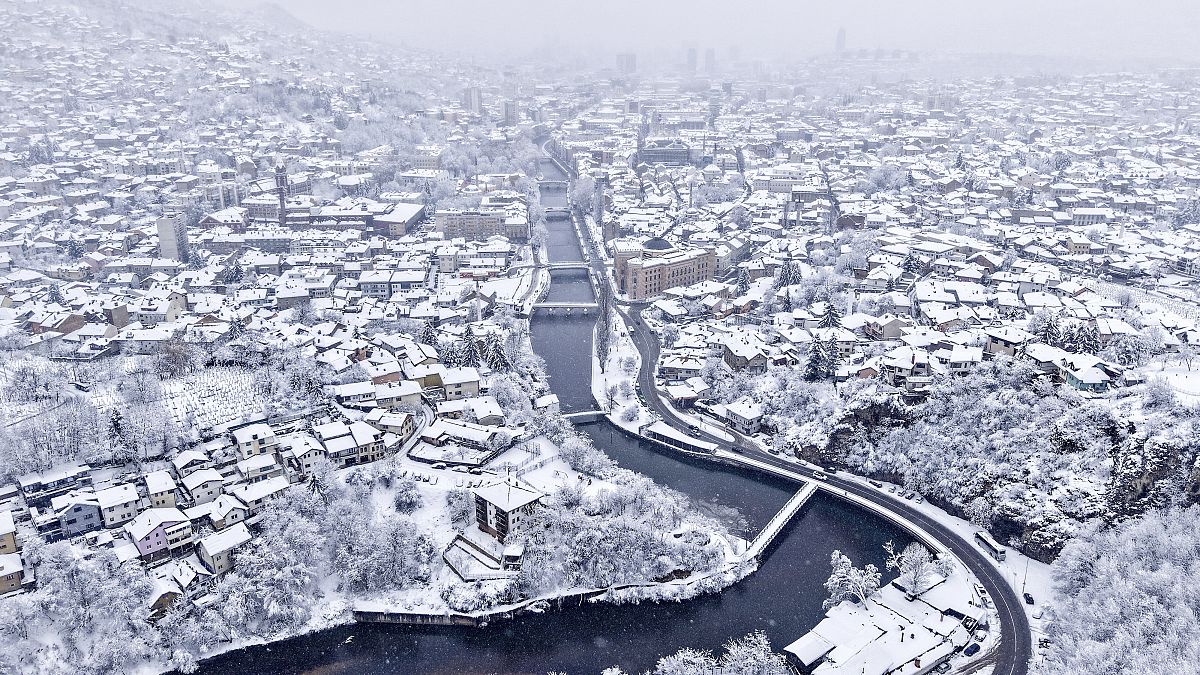A tragic incident occurred in Slovenia’s Alps last week when two Hungarian hikers got lost during a blizzard. The hikers, a man and a woman, were at an altitude of 1,700 meters when the weather took a turn for the worse. While the female hiker was found and rescued on Monday, the male hiker was unfortunately not located until later in the week. Despite the best efforts of Slovenian mountain rescuers, the man was found in a gorge with no signs of life.
The Slovenian mountain rescuers had a challenging time locating the Hungarian hikers due to the severe weather conditions in the area. Strong winds made it impossible for a helicopter to fly, delaying the rescue efforts. The rescue team had to descend into a gorge using ropes after a Slovenian police helicopter flew them near the site of the accident. Tragically, the man was found 250 meters lower than the accident site, buried under more than two meters of snow. The inclement weather conditions made it challenging for rescuers to find and extract the hikers.
The discovery of the Hungarian hiker’s body in the Alps serves as a reminder of the dangers that can arise when hiking in mountainous regions. The unpredictable weather in the Alps can quickly turn hazardous, putting hikers at risk of getting lost or injured. It is essential for hikers to be prepared for changing weather conditions and to have the necessary skills and equipment to navigate safely in mountainous terrain. Tragedies like this highlight the importance of proper planning and precautions when venturing into the wilderness.
Slovenia is renowned for its mountaineering and hiking opportunities in the Alps. The country’s rugged terrain and stunning landscapes attract outdoor enthusiasts from around the world. However, the mountains can be unforgiving, especially during inclement weather. It is crucial for hikers to be aware of the risks involved in mountain activities and to take appropriate safety measures. Slovenian mountain rescuers play a vital role in responding to emergencies and ensuring the safety of hikers and outdoor adventurers in challenging situations.
The snowstorm that hit the Balkans not only impacted the Hungarian hikers but also caused widespread disruption in the region. Tens of thousands of people were left without electricity, schools were closed, and traffic was snarled in Croatia, Bosnia, and Serbia. The severe weather conditions created chaos and posed significant challenges for emergency response teams. The incident serves as a reminder of the importance of being prepared for emergencies and disasters, especially in remote and mountainous regions where access can be limited.
In conclusion, the tragic loss of the Hungarian hiker in the Slovenian Alps underscores the risks and challenges that hikers may face in mountainous terrain. The incident serves as a sobering reminder of the importance of safety and preparedness when engaging in outdoor activities. The efforts of the Slovenian mountain rescuers highlight the dedication and bravery of emergency response teams in responding to crises in challenging environments. As outdoor enthusiasts continue to explore the beauty of Slovenia’s Alps, it is essential to prioritize safety and adhere to best practices to ensure a positive and safe experience in the mountains.











